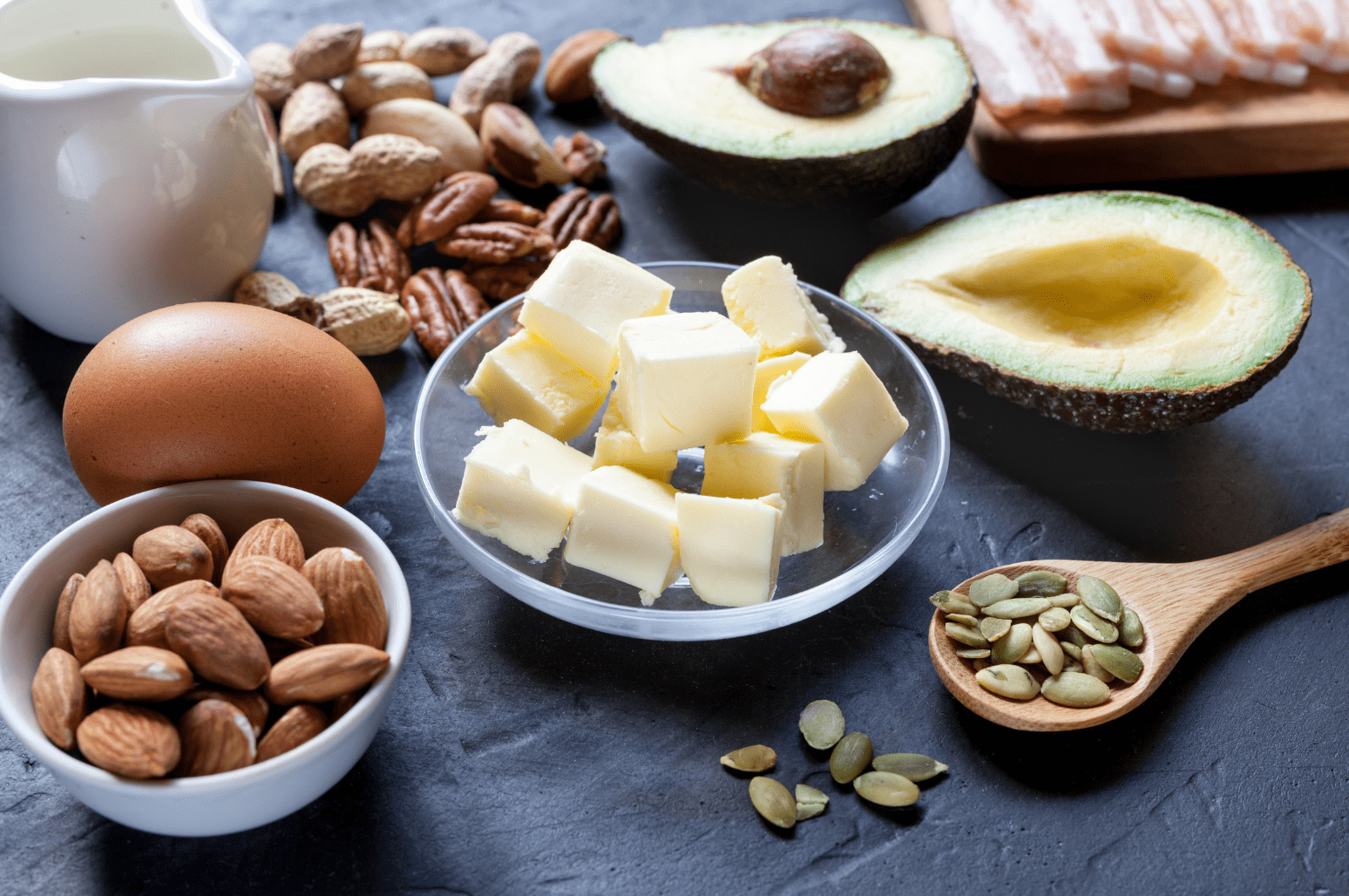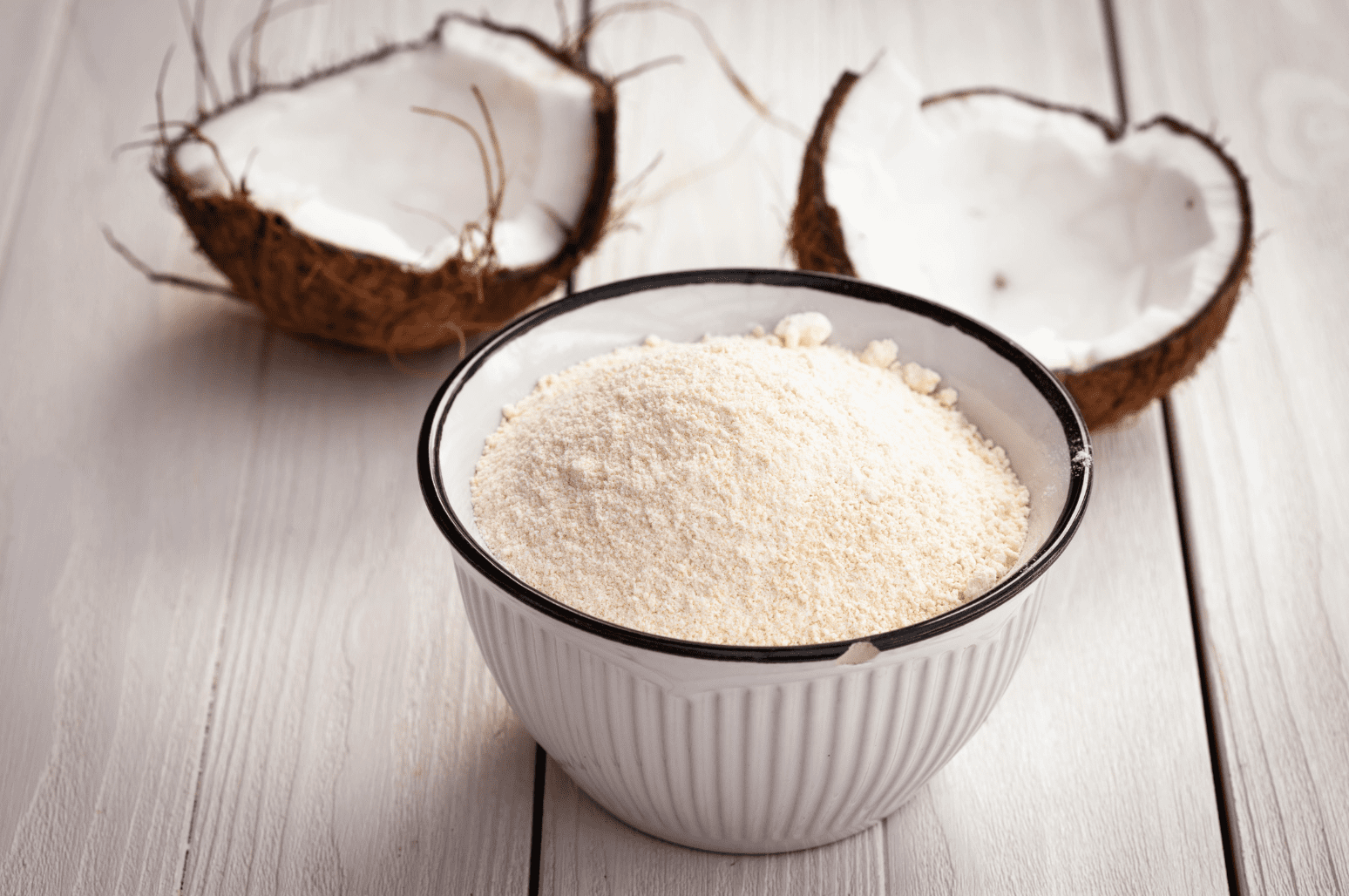Keto-Friendly Egg Replacements (Allergy and Vegan Friendly)

Eggs are common for baking, breakfast, and beyond. Since eggs are a staple on the ketogenic diet if you have an egg allergy or are vegan, finding eggless alternatives can be a hassle! Luckily, there are some keto-approved egg replacements you can use instead!
Why Do Some People Replace Eggs?
You might need to find a substitute for eggs for various reasons, such as allergies and dietary preferences. Eggs are a common food allergy in young children and infants; however, lots of children outgrow the allergy. If you’re following a vegan keto diet and choose not to eat animal products, you’ll also need to find an egg replacement.
When it comes to baking, eggs contribute color, flavor, and structure to a range of recipes. Eggs help bind ingredients together and trap pockets of air in foods, helping them to expand during heating. This helps puff up or rise baked goods like souffles and muffins and provides a light, fluffy, and airy texture. The liquid from eggs adds moisture and flavor and also contributes to the golden-brown appearance of many baked treats.
If you can’t have eggs, check out these replacements that deliver similar qualities, so you can still enjoy delicious keto treats!
Top Keto Egg Replacements
1. Ground Flaxseeds or Chia seeds

Chia and flax seeds are highly nutritious tiny seeds
in omega-3 fatty acids, fiber, and beneficial plant compounds. You can buy a ready-made seed meal or grind the seeds yourself at home.
As a replacement for one egg, whisk together 1 tablespoon of ground chia or flax seeds with 3 tablespoons of water until fully thickened and absorbed. This might result in a slightly nuttier flavor, so it works best in products like waffles, pancakes, and cookies.
2. Silken Tofu
To make tofu, condensed soy milk is processed and pressed into solid blocks. Silken tofu is a specific type of tofu with a higher water content and a softer consistency. The texture of tofu varies based on water content and tofu gets firmer when more water is pressed out during processing. To replace one egg, use one-fourth cup of pureed silken tofu. Silken tofu is practically flavorless, but it can yield denser and heavier baked goods, so it might be best used in cookies, brownies, and quick cakes and bread.
3. Vinegar and Baking Soda

To substitute one egg in most recipes, you can mix 1 teaspoon (7 grams) of baking soda with 1 tablespoon (15 grams) of vinegar. Most people choose apple cider vinegar or white distilled vinegar. When you mix vinegar and baking soda together, it begins a chemical reaction that produces water and carbon dioxide, making baked goods airy and light. This alternative is optimal for cupcakes, cakes, and quick bread.
4. Greek Yogurt
Yogurt can also be a good substitute for eggs. Make sure your yogurt is keto-friendly, such as full-fat Greek yogurt. Choose plain yogurt instead of flavored, which might alter the flavor of your recipe. Use one-fourth cup of yogurt for each egg. This works best for cakes, muffins, and cupcakes.
5. Aquafaba

Aquafaba is the liquid leftover from cooking legumes or beans. You can find this same liquid in canned beans or chickpeas. The liquid has a similar consistency to raw egg whites, so many people use it as a vegan replacement for eggs. To replace one egg, use 3 tablespoons of aquafaba. Aquafaba is a better choice in recipes calling just for egg whites, such as marshmallows, nougat, or macaroons.
6. Nut Butters
Nut butters like almond or cashew can also be used as egg replacements in most recipes. Use 3 tablespoons (60 grams) of nut butter to replace one egg. Keep in mind this might give you more of a nutty flavor, so it’s best used in pancakes, cookies, and brownies. Using creamy nut butters also helps everything mix properly.
7. Carbonated Water
Carbonated water adds moisture to a recipe and acts as a good leavening agent. The carbonation traps air bubbles and makes the finished product fluffy and light in texture. Replace one egg with one-fourth cup (60 grams) of carbonated water. This substitution is great for cupcakes, cakes, and quick bread.
8. Gelatin or Agar-Agar
Gelatin is a gelling agent usually derived from the collagen of pigs and cows. If you’re vegan and avoiding animal products, you can use agar-agar — a vegan alternative obtained from a type of algae or seaweed. You can find gelatin and agar-agar as unflavored powders in most health food stores, supermarkets, and online. To substitute one egg, dissolve 1 tablespoon (around 9 grams) of unflavored gelatin in 1 tablespoon of cold water. Next, mix in 2 tablespoons of boiling water to achieve a frothy consistency. If you’re using agar-agar, use 1 tablespoon of the powder mixed with 1 tablespoon of water to replace one egg. These alternatives shouldn’t affect the flavor of your finished product, but they might slightly alter the texture.
Do You Follow An Eggless Keto Diet Approach?
What are your favorite keto egg replacements? Comment below and share your experiences with the keto community!









